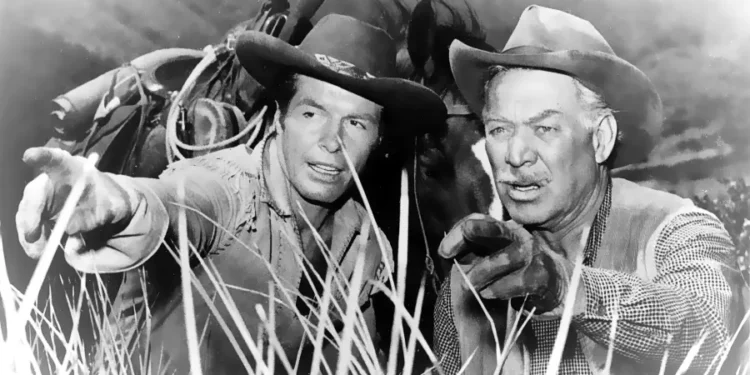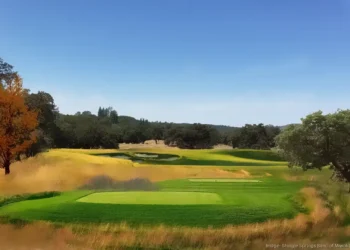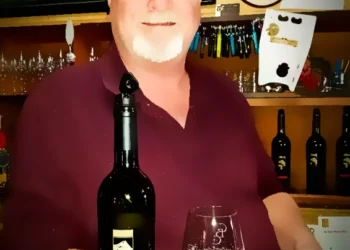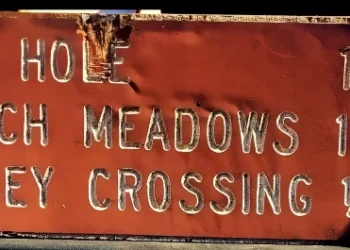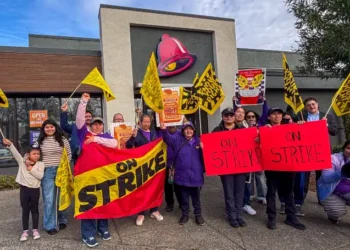Editorial by Cris Alarcon, InEDC Writer. (June 7, 2025)
PLACERVILLE, Calif. — As wagons roll into town for the 76th Annual Highway 50 Wagon Train this Saturday, Placerville’s Golden History Days is drawing both praise and criticism for its broader portrayal of the past. Organizers have woven new historical threads into the event, spotlighting the roles of Native Americans, Black pioneers, Latino Californios, and Asian immigrants—groups long left out of Old West reenactments.
A social science analyst can identify several elements in an article Posted by Bill Sullivan that align with the values commonly associated with the contemporary “woke” movement—a term that, despite its politicized baggage, originally referred to a heightened awareness of social injustices, particularly those related to race, identity, and historical inequities.
Here are the aspects of Sullivan’s Golden History Days story that reflect “woke” principles:
1. Inclusive Historical Narratives
“These historical portrayals will reflect the lives and experiences of Native Americans, Black Americans, Hispanic and Californio settlers, Japanese and Chinese immigrants…”
This passage directly addresses a core goal of the “woke” movement: amplifying historically marginalized voices. By spotlighting the diverse groups who contributed to California’s development—beyond the dominant Euro-American settler narrative—the event challenges the traditional, often exclusionary, version of Old West history.
2. Acknowledgment of Historical Injustices and Omissions
“…elevating the stories of those whose contributions often went unrecognized…”
This is a hallmark of the modern social justice approach: reckoning with historical erasure. It implies a critique of previous narratives that focused solely on pioneers or gold miners, instead advocating for a more equitable retelling that includes those left out of textbooks and Hollywood portrayals.
3. Celebration of Cultural Diversity and Unity
“…a community-driven celebration of cultural diversity and unity…”
Promoting multiculturalism and solidarity across differences are central themes in the “woke” discourse. This line signals a shift from mere reenactment to social commentary, suggesting that understanding the past is vital to creating a more just, inclusive present.
4. Education as Empowerment
“…the event promotes education, appreciation, and a deeper understanding of the region’s complex past.”
Rather than romanticizing westward expansion, this approach encourages critical thinking and reflection. It reflects the modern educational goals often associated with “wokeness”—namely, learning not just what happened, but who it happened to, and why it matters today.
5. Reclaiming Space Through Representation
“…in partnership with local merchants and historical groups, have crafted an inclusive celebration…”
This speaks to reclaiming public commemorations—an action often seen in movements that seek to replace outdated or exclusionary traditions with more representative ones. Instead of resisting change, the event adapts to evolving values by including broader perspectives.
While the event still honors pioneer heritage through the Wagon Train re-enactment—a more traditional, perhaps nostalgic, element—it’s the intentional inclusion of underrepresented groups and the emphasis on educational diversity and historical accuracy that reflect a “woke” culture.
For some locals, this marks a welcomed evolution. For others it’s a sign that Placerville is “going woke.”
“History should be remembered as it was, not reimagined to meet political correctness,” Sullivan wrote. “This Wagon Train has honored pioneer heritage for over 75 years. Now it risks becoming a traveling apology tour.”
But event organizers argue their intent isn’t to erase the traditional narrative—it’s to enrich it.
“This isn’t about rewriting history,” said Maria Delgado, spokesperson for the Highway 50 Association. “It’s about including the people who were always there, even if history books didn’t mention them. The Gold Rush was not just white men in wagons.”
Scheduled historical portrayals included tributes to the Washoe people native to the Sierra Nevada, Chinese railroad workers, and African American entrepreneurs that settled in El Dorado County following emancipation. Living history booths, educational reenactments, and street performances aim to engage visitors with a fuller, more representative view of 19th-century California.
The inclusion in Placerville, where the town famously removed its “hanging man” noose symbol from its city seal in 2021, these shifts represent a broader effort to reconcile local heritage with contemporary values.
Still, not everyone is on board.
“Go woke, go broke,” muttered one longtime resident outside a downtown café on Main Street. “I just want my Wagon Train, not a sociology lecture.”
Despite the controversy, foot traffic and tourism projections remain strong. Businesses lining Main Street say they’re ready for a crowd.
Golden History Days kicked off at noon on Saturday, June 7, with the Wagon Train arriving at the Bell Tower by 3 p.m. Organizers said they expect thousands to attend.
Sullivan questioned the event’s new direction: “Golden History Days brings the Old West to life on Main Street this Saturday,” Sullivan continued, “—but now it also brings a traveling apology tour for past sins.”
folsomtimes.com
As wagons rolled down Placerville’s Main Street this Saturday for the 76th Annual Highway 50 Wagon Train, the historic corridor is caught between celebration and crisis.
The culture clash over historical inclusion masks a deeper struggle: Placerville’s Main Street is economically battered. A wave of business closures, including Round Table Pizza, Rocker Oysterfeller’s, and the once-popular Placerville Biergarten, has left dark windows and unanswered questions along the brick-lined sidewalks.
“Main Street has seen fewer visitors in recent years,”
reads a May 2025 report from InEDC.
“Weekday sales have particularly slumped, and even weekends aren’t what they used to be.”
Cascading issues—rising rents, labor shortages, burdensome regulations, and demographic shifts—have only compounded the problem. The lingering impact of the 2021 Caldor Fire and an aging population has hollowed out foot traffic.
“There are serious headwinds, no question,”
said City Manager Cleve Morris, who noted that over 50 businesses still operate on Main Street.
“But we are actively working on economic resilience.”
That effort includes discussions about launching a “buy local” campaign and improving parking access. Yet budget constraints remain a hurdle. A proposal to hire The Retail Coach, a firm specializing in downtown revitalization, was tabled due to its $45,000 price tag.
“We need locals to come to Main Street, not just tourists,”
said PEAC Member Windle at an August 2024 advisory meeting.
“Changing the narrative is key.”
Ironically, Golden History Days may offer both a risk and a remedy. Critics warn that shifting the cultural tone of the event could alienate long-time attendees, while supporters believe inclusive storytelling could draw a broader audience and revitalize local pride.
“We support whatever brings people together and sparks conversation,”
said Cathy Liu, a local shop owner.
“Our past is complex. That’s what makes it interesting.”
Whether Main Street finds salvation in new narratives or falters under changing times remains to be seen. For now, all eyes were on Placerville this Saturday, where the clatter of wagon wheels echoed down streets that have weathered gold rushes, wildfires—and now, identity debates.
Below is a deeper breakdown of business closures and vacancies on Placerville’s Historic Main Street from mid-2023 through mid-2025, organized by address, date of closure, business name, and notable context or contributing factors when available.
???? Confirmed Business Closures (Mid-2023 to Present)
| Address | Business Name | Closure Date | Notes / Contributing Factors |
|---|---|---|---|
| 512 Main St. | Round Table Pizza | July 2024 | Longtime staple; cited rising rent and reduced foot traffic. Vacancy remains. |
| 564 Main St. | Rocker Oysterfeller’s | August 2024 | High-end restaurant; reportedly struggled post-pandemic and post-Caldor Fire. |
| 383 Main St. | Cascada Restaurant | Late 2024 | Upscale Mexican fare; staff shortages and increased overhead. |
| 780 Main St. | Placerville Biergarten | Early 2025 | Popular among locals; closure came after declining weekday revenue and permit delays for expansion. |
| 489 Main St. | Robinson’s Pharmacy (retail front only) | September 2023 | Compounded by industry-wide shifts to chain pharmacies and insurance hurdles. |
| 475 Main St. | Belle’s & Beaus Boutique | December 2023 | Clothing and accessories; cited lack of downtown walk-ins and aging customer base. |
| Unspecified Address | Enchanted Forest Dining Experience | Late 2023 | Closure likely due to niche concept, seasonal downturn, and limited repeat customers. |
????️ Vacant or Rotating Spaces (As of June 2025)
| Address | Status | Notes |
|---|---|---|
| 502 Main St. | Vacant | Previously a toy & game shop; owners moved online in 2023. |
| 508 Main St. | “For Lease” | Briefly home to a pop-up art gallery. Empty since November 2024. |
| 514 Main St. | High turnover | Multiple short-term tenants since 2022; currently vacant. |
| 532 Main St. | Currently in negotiation | Folsom-based coffee chain in talks to occupy the space. Could be a bellwether for Main Street’s adaptability. |
| 567 Main St. | Vacant since COVID era | Once a wine-tasting room; never recovered post-pandemic. |
| Near Bell Tower | Short-term vendor stalls | Event-day only vendors; space remains largely unutilized on weekdays. |
???? Key Contributing Economic Pressures
-
Rising Commercial Rents:
Historic Main Street properties often require costly upkeep, and landlords have raised rents to keep pace with inflation and insurance hikes. -
Post-Caldor Fire Fallout:
Many former customers were displaced in 2021 and have not returned. The fire also cooled tourism for nearly a year. -
Changing Visitor Patterns:
Weekends bring some foot traffic, but weekdays have fallen flat. Online shopping and large retail centers (Target, Amazon, El Dorado Hills Town Center) have siphoned spending. -
Labor Shortages:
Several businesses closed or reduced hours due to the inability to hire and retain workers in a region with a high cost of living but limited housing supply. -
Regulatory Frustrations:
Permitting delays and strict historic preservation requirements make renovations and upgrades costly and time-consuming.
???? Signs of Renewal
Despite the headwinds, there are glimmers of hope:
-
Folsom-based coffee company planning a new shop downtown (expected opening late 2025).
-
Events like Golden History Days, Art Walks, and Antique Fairs continue to draw visitors intermittently.
-
Local groups are revisiting Oktoberfest after the 2024 cancellation due to insurance issues.
-
The city is exploring a “Buy Local Placerville” campaign, although funding remains a question.

